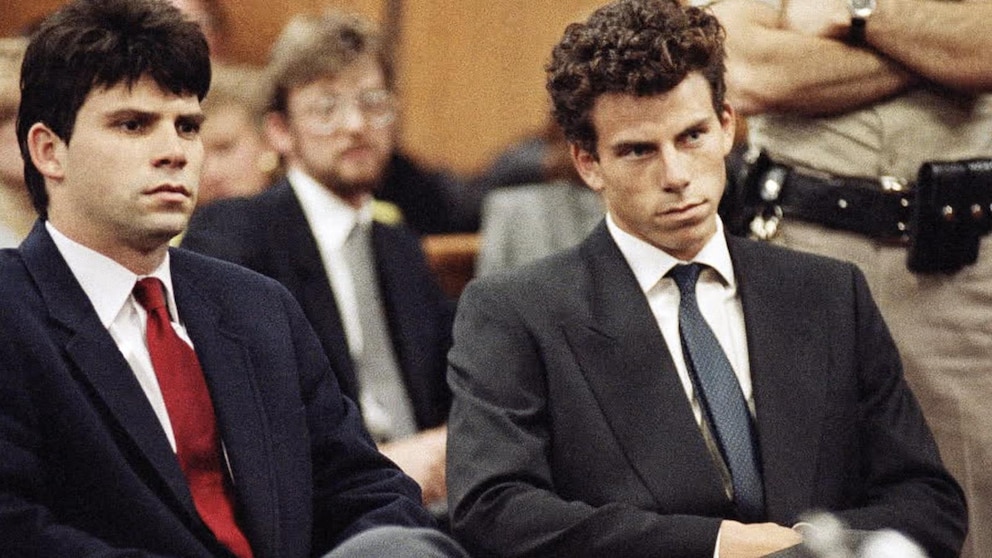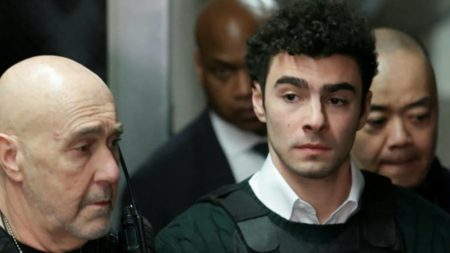New LA District Attorney Urges Judge to Reject Retrial of Menendez Brothers
In a surprising turn of events, the newly appointed Los Angeles District Attorney has filed a motion urging the court to reject the retrial of the infamous Menendez brothers, Lyle and Erik. The case, which has captivated the nation for decades, revolves around the brutal murder of the brothers’ parents, Jose and Kitty Menendez, in 1989. The DA’s decision to oppose a retrial has sparked widespread debate, with many questioning the reasoning behind this stance and its potential implications for justice.
A Brief History of the Menendez Brothers Case
For those unfamiliar with the case, the Menendez brothers were accused of murdering their wealthy parents in their Beverly Hills home. The crime was particularly shocking due to its brutality and the affluent background of the family. Initially, the brothers were portrayed as spoiled rich kids who orchestrated the murder to gain control of their parents’ estate. However, as the case progressed, disturbing details emerged about the brothers’ troubled upbringing, including allegations of physical and emotional abuse by their father and sexual abuse by both parents.
The first trial ended in a hung jury, but in 1996, the brothers were retried and convicted of first-degree murder. They were sentenced to life in prison without the possibility of parole. Over the years, the case has been revisited in various true-crime documentaries, books, and even a TV series, with many people expressing sympathy for the brothers, citing the abuse they endured as a mitigating factor.
The District Attorney’s Stance: A Shift in Approach to Justice
The new District Attorney, who campaigned on a platform of criminal justice reform and a more compassionate approach to prosecution, has argued that retrying the Menendez brothers would be redundant and unjust. The DA’s office contends that the brothers have already served significant time and that a retrial would not serve the interests of justice. Furthermore, the DA has highlighted the need to consider the long-term effects of trauma and abuse on the brothers’ actions, suggesting that their actions, while horrific, were the result of a deeply troubled environment.
This shift in approach reflects a broader movement within the criminal justice system to consider the root causes of crime, rather than merely punishing offenders. Advocates of this approach argue that understanding the complexities of a defendant’s background can lead to more equitable outcomes and a more rehabilitative focus within the justice system.
Public Reaction and the Broader Implications
The DA’s decision has been met with mixed reactions from the public and legal experts. Some have praised the move as a step toward a more compassionate and thoughtful justice system, while others have expressed outrage, arguing that the severity of the crime warrants continued punishment. The case has also reignited the debate over the role of trauma and abuse in criminal behavior and whether such factors should mitigate punishment.
The broader implications of this decision could be significant. If the judge agrees to reject the retrial, it could set a precedent for similar cases where defendants have endured significant abuse or trauma. This could lead to a more nuanced approach to criminal justice, where the focus is not solely on punishment but also on rehabilitation and understanding the underlying causes of criminal behavior.
The Future of the Menendez Brothers and the Justice System
As the court considers the DA’s motion, the Menendez brothers remain in prison, their fate hanging in the balance. Should the retrial be rejected, the brothers could potentially be released on parole or have their sentences reduced. This outcome would undoubtedly be controversial, with some arguing that they have paid their debt to society and others insisting that their crimes are too heinous to justify leniency.
Regardless of the outcome, the Menendez case serves as a stark reminder of the complexities of the justice system and the challenges of balancing punishment with compassion. The decision of the new District Attorney to oppose a retrial reflects a growing trend toward reevaluating how we approach criminal justice, with a greater emphasis on understanding the root causes of crime and the long-term effects of trauma and abuse.
Conclusion: A Complex Case with Far-Reaching Consequences
The case of the Menendez brothers is a complex and deeply troubling one, with no easy answers. While the brothers’ actions were undeniably horrific, the circumstances that led to them are equally disturbing. The DA’s decision to oppose a retrial has brought these issues back into the spotlight, forcing the public and the justice system to grapple with difficult questions about the nature of justice, compassion, and the role of trauma in shaping human behavior.
As the legal system continues to evolve, cases like that of the Menendez brothers will serve as crucial test cases for new approaches to criminal justice. Whether the court decides to reject the retrial or proceed with it, the outcome will have far-reaching consequences, not just for the brothers, but for the broader conversation about how we address crime and punishment in our society.















